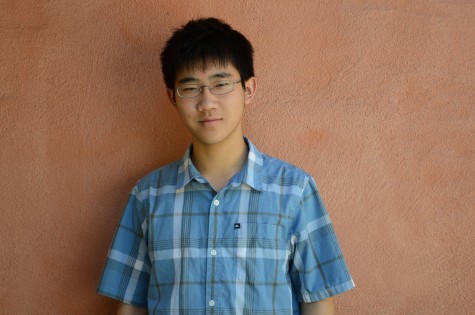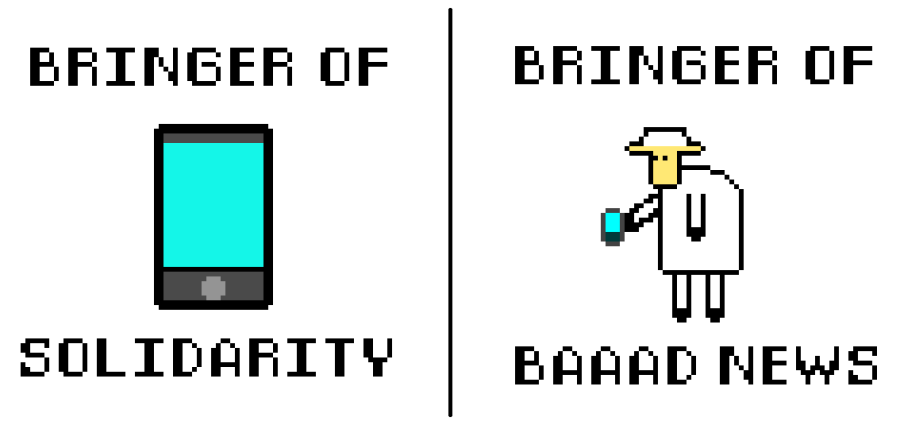Social media’s evolution into the most versatile communication tool
Though social media platforms first arose as modes of communication between social groups, groups now use social media to spread news, advertise, and gather support for events. This versatility highlights social media’s evolution into a key communication tool in the past few years.
Social media has changed global networking by allowing users from across the world to communicate with each other quickly and reliably. While services such as Facebook, Twitter and Instagram are typically used for mundane purposes such as communicating with friends, social media services have the capacity to become an instrument of profound change. Without this tool, many large-scale social movements would be not just hindered but made impossible.
Social media can bring light to underrepresented issues and allow for a greater degree of awareness. Last year, the ALS Association (Amyotrophic Lateral Sclerosis) started the “ALS ice bucket challenge” in which participants pour buckets of ice water over themselves in recognition of ALS, also known as Lou Gehrig’s disease. The challenge went viral and raised 88.5 million dollars for the ALS Association to be used in search of a cure for the disease. This is a staggering 3000 percent increase from the 2.6 million dollars raised the year before, in which social media played a smaller role in procuring donations.
Few alternative mechanisms can replicate this increase. While traditional methods of raising awareness, such as running advertisements and creating public service announcements, can be effective, a simple challenge posed over social media was able to generate an even greater increase in visibility in a much shorter amount of time with minimal investment.
The case of Ahmed Mohamed and his homemade clock exemplifies this trend of social media’s rapid dissemination of ideas. Soon after the incident, thousands of Twitter users decried Mohamed’s arrest. With numerous shares and re-tweets across multiple social media sites, as well as the blogging of statements by celebrities and politicians, the incident gained national attention and became a topic broadcast by every major news organization. Without social media, Mohamed’s arrest would have been just that – an insular event in a quaint Texan city. While people would have certainly still tried to make the injustices known, only with the use of social media could that discussion erupt overnight.
Social media has made it possible for even the faintest of voices to become a great rallying cry heard across the globe.
It is important to note that social media has equal potential to be used for unjust purposes.
Like the chorus of a Greek play, the collective voice can sometimes be misguided. And when discussing serious topics, misjudgments can be catastrophic.
After the Boston Marathon Bombings, the Federal Bureau of Investigation released photographs of potential perpetrators. On the online forum Reddit, users tried to identify these suspects, prompting a large-scale online witch hunt. Through the speculations and sleuthing of random, unqualified internet users, the movement identified a college student who had gone missing before the attacks. Users believed they had found the bomber. Posts celebrating Reddit’s victory abounded.
Reddit users posted his identity and harassed his family. But Reddit identified the wrong man. This alleged bomber had died before the attacks even occurred. Conformity to herd mentality spurred users to not only obstruct the course of justice, but falsely accuse an innocent citizen and ruin the lives of his family.
Without Reddit, this movement would not have gained nearly as much traction. The public rarely gives widespread acceptance of conspiracy theories. But when this conspiracy theory, formulated by an unqualified, random internet user, was posted online, it gained a sizable following. The website has allowed an idea that would otherwise seem ridiculous to be both widely supported and disseminated.
Social media has also greatly impacted the Paris incidents. The Islamic State of Iraq and the Levant (ISIL), which has claimed responsibility for the attacks, makes use of social media to both spread propaganda and recruit members. ISIL members maintain multiple accounts on numerous social media websites, including Facebook and Twitter, and create large hashtag campaigns.
Without social media, it would be nearly impossible for ISIL to recruit outside of the Middle East. But by utilizing digital services, ISIL can remotely gain followers among citizens in countries across the world.
In fact, at least six of the coordinators of the Paris attack were not Syrian but European natives. Without support and intelligence from within France and Belgium, it would have been extremely difficult for ISIL to plan the Paris attacks. But through social media services, the group is able to easily and effectively advertise its cause and find supporters at an international level.
These innovative uses of social media reveal a surprising fact – social media has the indubitable capacity to be used for global change. People no longer need large sums of money to spread an opinion. Now, anyone with access to a computer and ingenuity can reach out to a large audience for free.
We already see corporations trying to take advantage of this fact. Some companies have created YouTube-exclusive advertisements to promote a certain product in the hopes of the video going viral and drawing millions of views.
For instance, Toyota created this Back-to-the-Future throwback to promote their hydrogen-fueled cars. This advertisement was never aired on television and only ran on YouTube.
New marketing techniques have arisen to capitalize upon this realization.
Social media has made it possible for even the faintest of voices to become a great rallying cry heard across the globe. We should no longer trivialize social media apps as merely a way to stay informed and keep in touch with friends – they are a tool of infinite versatility.

Derek Yen is a senior and the Opinion Editor of Winged Post. Derek served as the STEM Editor of Aquila and Winged Post during his junior year and as a...


















![“[Building nerf blasters] became this outlet of creativity for me that hasn't been matched by anything else. The process [of] making a build complete to your desire is such a painstakingly difficult process, but I've had to learn from [the skills needed from] soldering to proper painting. There's so many different options for everything, if you think about it, it exists. The best part is [that] if it doesn't exist, you can build it yourself," Ishaan Parate said.](https://harkeraquila.com/wp-content/uploads/2022/08/DSC_8149-900x604.jpg)




![“When I came into high school, I was ready to be a follower. But DECA was a game changer for me. It helped me overcome my fear of public speaking, and it's played such a major role in who I've become today. To be able to successfully lead a chapter of 150 students, an officer team and be one of the upperclassmen I once really admired is something I'm [really] proud of,” Anvitha Tummala ('21) said.](https://harkeraquila.com/wp-content/uploads/2021/07/Screen-Shot-2021-07-25-at-9.50.05-AM-900x594.png)







![“I think getting up in the morning and having a sense of purpose [is exciting]. I think without a certain amount of drive, life is kind of obsolete and mundane, and I think having that every single day is what makes each day unique and kind of makes life exciting,” Neymika Jain (12) said.](https://harkeraquila.com/wp-content/uploads/2017/06/Screen-Shot-2017-06-03-at-4.54.16-PM.png)








![“My slogan is ‘slow feet, don’t eat, and I’m hungry.’ You need to run fast to get where you are–you aren't going to get those championships if you aren't fast,” Angel Cervantes (12) said. “I want to do well in school on my tests and in track and win championships for my team. I live by that, [and] I can do that anywhere: in the classroom or on the field.”](https://harkeraquila.com/wp-content/uploads/2018/06/DSC5146-900x601.jpg)
![“[Volleyball has] taught me how to fall correctly, and another thing it taught is that you don’t have to be the best at something to be good at it. If you just hit the ball in a smart way, then it still scores points and you’re good at it. You could be a background player and still make a much bigger impact on the team than you would think,” Anya Gert (’20) said.](https://harkeraquila.com/wp-content/uploads/2020/06/AnnaGert_JinTuan_HoHPhotoEdited-600x900.jpeg)

![“I'm not nearly there yet, but [my confidence has] definitely been getting better since I was pretty shy and timid coming into Harker my freshman year. I know that there's a lot of people that are really confident in what they do, and I really admire them. Everyone's so driven and that has really pushed me to kind of try to find my own place in high school and be more confident,” Alyssa Huang (’20) said.](https://harkeraquila.com/wp-content/uploads/2020/06/AlyssaHuang_EmilyChen_HoHPhoto-900x749.jpeg)



